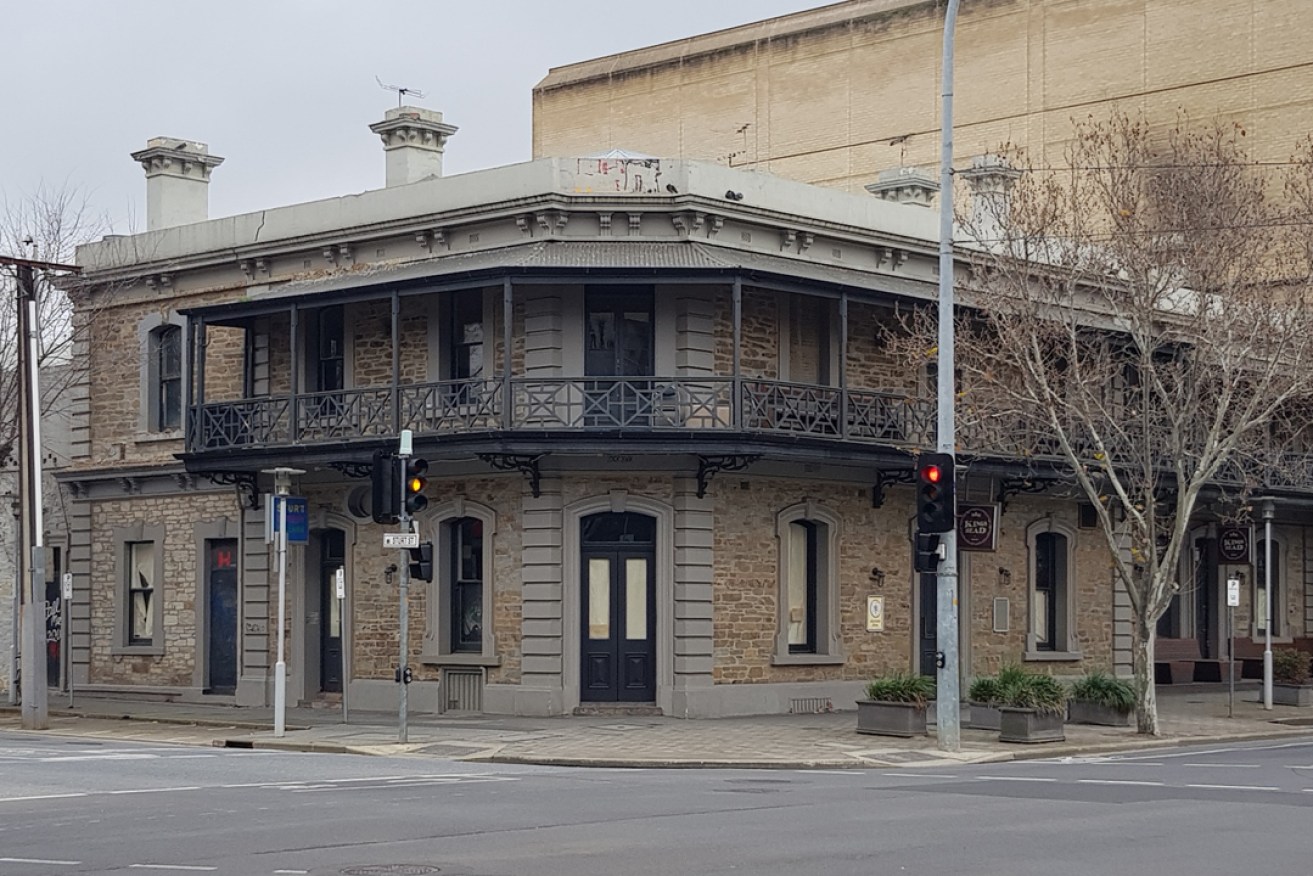King’s Head is back on in tough pub scene
City pub The King’s Head is set to reopen as a bar and pizzeria in October while a number of other South Australian pubs remain on the market.


Historic city pub The King's Head is set to re-open in October.
The King’s Head went into liquidation in April, having amassed hundreds of thousands of dollars’ worth of debts, which were owed to the ATO, shareholders, local wineries and breweries including Pirate Life, Little Bang Brewing and Rusden Wines.
Liquidator Daniel Lopresti, of Clifton Hall, was brought in to recoup funds in April.
Last week, Lopresti told InDaily the pub’s assets had been sold back to the landlord “shortly after” the liquidation process had begun – but would not disclose the sale amount.
The King’s Head opened on King William Street in 1876.
For the last 20 years it was owned by a private investment consortium with publican Gareth Lewis leasing the pub from 2008 until April.
Lewis told CityMag in April, the pub’s closure was the culmination of a tough economy prior to the pandemic, inadequate government support and finally the coronavirus-induced restrictions.
He said once the pub was forced to implement social distancing rules revenue dropped by 50 per cent, staff were let go and, ultimately, the liquidator was brought in.
McGees Property director Grant Clarke said he was “in negotiations and finalising a contract” with a new tenant, who planned to reopen the pub in October.
He declined to name the potential new tenant.
“The purchaser is intending to upgrade the hotel to provide a café/ bakery provedore in the old bottle shop area, which is on the corner of the hotel,” Clarke said.
“They plan to continue with the traditional bar on the King William Street side and the rear restaurant will have a woodfired oven pizza and be a pizzeria/ cantina.
“The dynamics of the whole precinct have changed substantially with two large office buildings and an accommodation tower being built at the southern end of King William Street – that’s created the need for a café.”
Clarke said the property was also due to undergo extensive external works in conjunction with Heritage SA.
“The balcony is going to be redone and the external painting of the hotel will be redone,” he said.
It comes as a number of South Australian pubs and hotels, including Hotel Richmond, The Cumberland and Salisbury Hotel, are having trouble finding new owners.
Hotel Richmond hit the market in September.
Located in Rundle Mall, the 30-room property includes two function areas, bar and restaurant and downstairs bar with 32 gaming machines.
The original property was called the Cornwall Inn and opened in 1839. It was rebuilt and became the Plough and Harrow in 1844.
In 1926 it had its final build and became the Hotel Richmond.
Meanwhile, the 150-year-old Cumberland Hotel in Glanville and Salisbury Hotel have both been looking for buyers since May.
The Cumberland is a two-storey building on a 1016sqm block near Port Adelaide and has a bar, several dining areas, a stage, commercial kitchen and six gaming machines.
Salisbury Hotel underwent a $3 million upgrade in late 2018. It includes a bar and sports bar, indoor and outdoor dining and commercial kitchen.
It’s the first time the 1470sqm building has been up for sale since the mid-1980s.
Clarke said trying to entice buyers had been tough.
“The appetite for a new hotel hasn’t been interested at all with any purchases,” he said.
“A lot of my hotel sales are based on existing operators upgrading or buying another hotel to add to their portfolio.
“COVID-19 has just stopped all of that because they’ve just been scrambling to control and survive their own businesses.”
Australian Hotels Association SA general manager Ian Horne said he expected the hotel and pub market to only grow more precarious, anticipating more businesses to fold come October.
“That’s when we’re going to see a lot of the rent referrals, the rates and taxes referrals, things like gambling tax referrals, liquor licensing waivers, banks coming to arrangements to help people through tough times with the lease arrangements,” Horne said.
“I think if venues lose access to JobKeeper, which has been largely a subsidy of their wage structures, if they’ve then got to face a range of government and landlord taxes and rents, I think … the greatest risks will be post September this year.
“Prior to COVID-19 we had a number of interstate interest in our marketplace here, some actually going back 12, 18 even 9 months.
“Any interstate interest will have difficulty doing the transaction because they can’t get here to touch and feel the assets and things like that.”
Want to comment?
Send us an email, making it clear which story you’re commenting on and including your full name (required for publication) and phone number (only for verification purposes). Please put “Reader views” in the subject.
We’ll publish the best comments in a regular “Reader Views” post. Your comments can be brief, or we can accept up to 350 words, or thereabouts.




